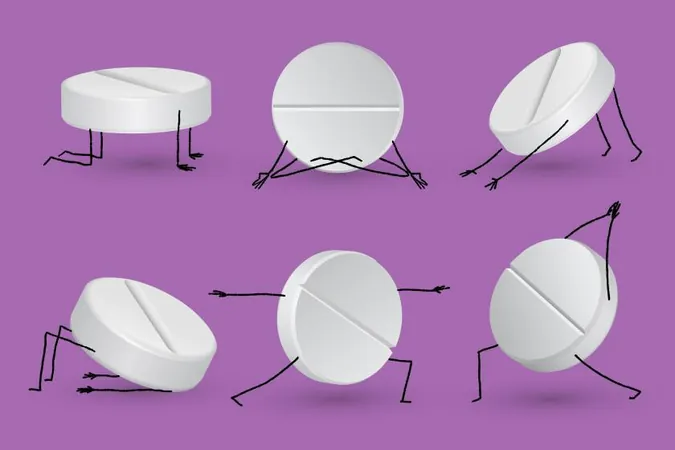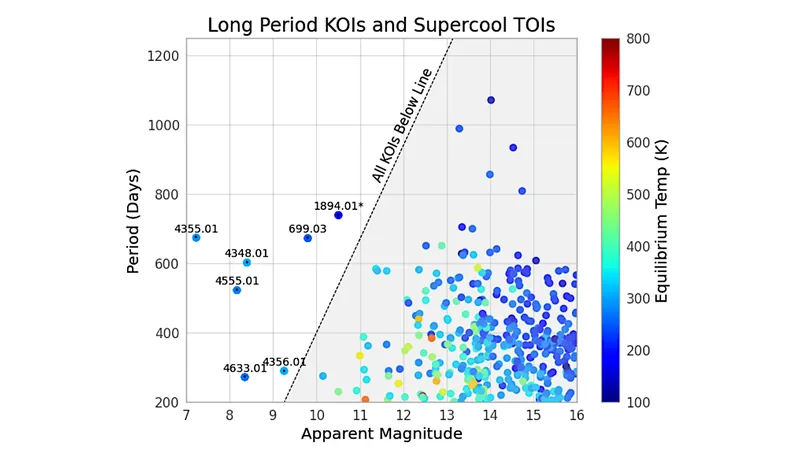
Is a "Yoga Pill" on the Horizon to Cure Anxiety? Groundbreaking Research Reveals Brain Circuit Key to Instant Calm
2024-11-27
Author: Wei
Introduction
Imagine this: You're in a crowded restaurant, your palms are sweaty, and your heart feels like it's about to leap out of your chest. As anxiety takes hold, finding a private place to ground yourself with deep breathing seems impossible. What if a simple pill could offer the calm you desperately need?
Groundbreaking Research
In a groundbreaking study published in *Nature Neuroscience*, neuroscientists at the Salk Institute for Biological Studies in La Jolla have uncovered a specific brain pathway that dramatically alleviates anxiety. This discovery paves the way for potentially revolutionary new medications that could replicate the tranquility often achieved through breathing exercises, meditation, or yoga practices.
The Vision of a "Yoga Pill"
Lead researcher Sung Han envisions a future with a "yoga pill" that could serve the over 40 million adults in the U.S. grappling with anxiety disorders. Current data from the National Alliance on Mental Illness highlights how prevalent these issues are, making this research especially timely and crucial.
Significance of the Discovery
Han emphasizes the significance of this finding, stating to the *Los Angeles Times*, “As a scientist, finding something never known before is always exciting. This top-down breathing circuit has been a longstanding question in the neuroscience field. It’s thrilling to identify how breath regulation can influence negative emotions like anxiety and fear.”
The Mechanism Behind Breathing and Anxiety
Historical knowledge has shown us that altering our breathing can change our mental state. During moments of stress, taking deep, slow breaths can help us feel centered. However, understanding the underlying mechanisms has remained elusive—until now. The researchers pinpointed a cluster of cells in the cerebral cortex, the brain area responsible for conscious thinking, which communicates with the brain stem to control breathing patterns.
Validation of Traditional Practices
This discovery lends scientific validation to traditional practices such as yoga and mindfulness, highlighting how these age-old techniques can effectively mitigate anxiety. More importantly, Han argues that their findings could lead to targeted medications that would minimize the side effects often associated with standard anti-anxiety drugs like Xanax and Lexapro, which affect multiple brain regions.
Limitations of Current Medications
Current prescription medications do not work uniformly for everyone and can lead to a range of unwanted side effects. By specifically targeting the newly discovered breathing circuit, health professionals could develop treatments that are significantly more effective and better tolerated by patients.
The Profound Implications
The implications are profound. Han points out that in the throes of a panic attack, conventional breathing exercises may not suffice to quell the storm of anxiety. "If you’re in panic, breathing techniques alone may not be sufficient to suppress anxiety," he explains.
Future Research Directions
Looking ahead, Han and his team are also on a quest to identify the counter circuit responsible for rapid breathing, which heightens anxiety. Understanding this contrasting mechanism will be critical for honing in on effective therapies.
Conclusion
However, before anyone gets too excited about a "yoga pill" being available at a pharmacy near you, it's essential to note that this research is just the first step on a long path—clinical trials could take up to a decade.
"We now know the pathway," Han admits. "That's exciting. It’s a stepping stone, but there are no guarantees yet."
While we may have to wait for this revolutionary treatment, the promise of a scientifically-backed solution to anxiety disorders shines a light on how far neuroscience has come— and how far it still has to go. Keep your eyes peeled; the future of anxiety management might just be around the corner!



 Brasil (PT)
Brasil (PT)
 Canada (EN)
Canada (EN)
 Chile (ES)
Chile (ES)
 España (ES)
España (ES)
 France (FR)
France (FR)
 Hong Kong (EN)
Hong Kong (EN)
 Italia (IT)
Italia (IT)
 日本 (JA)
日本 (JA)
 Magyarország (HU)
Magyarország (HU)
 Norge (NO)
Norge (NO)
 Polska (PL)
Polska (PL)
 Schweiz (DE)
Schweiz (DE)
 Singapore (EN)
Singapore (EN)
 Sverige (SV)
Sverige (SV)
 Suomi (FI)
Suomi (FI)
 Türkiye (TR)
Türkiye (TR)